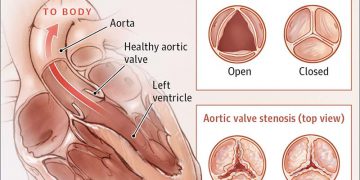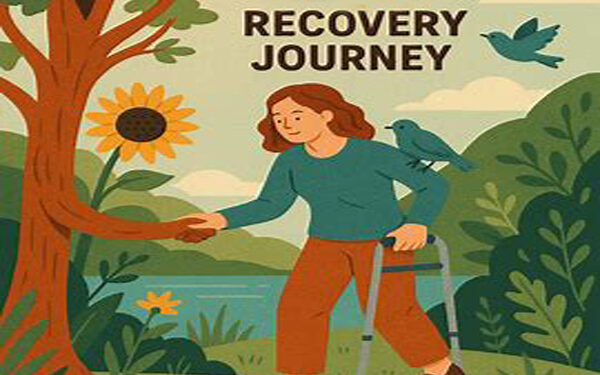Understanding the Role of Nature in Rehabilitation
Outdoor activities are increasingly being woven into rehabilitation programmes as a way to blend the unique benefits of nature with more traditional treatments. Bringing people outside isn’t just a change of scenery; it supports recovery on many levels, from improving physical fitness to easing stress and uplifting mood.
Something as simple as hiking, cycling, or gardening can raise your heart rate, strengthen muscles, and boost overall health. But the impact doesn’t stop at the body. Time spent outdoors encourages the release of feel-good brain chemicals like serotonin and dopamine. That’s great news for anyone experiencing anxiety or low mood during rehab.
There’s a growing body of research showing that natural settings support better sleep and sharpen our thinking, both of which are vital during recovery.
Tapping into nature through outdoor activities gives people more than just exercise – it offers a genuine lift for both mind and body, making the journey through rehabilitation a little brighter and more sustainable.
The Benefits of Outdoor Activities for Physical Health
Activities like hiking, cycling, and swimming bring major benefits for your body, especially your heart and stamina. Getting your heart pumping in the fresh air strengthens the heart muscle and helps keep your blood flowing well, which over time can lower the risk of heart disease and keep your heart working more efficiently.
Nature-based movement, from rock climbing to outdoor yoga, gives your muscles a good challenge and encourages a mix of strength, tone, and endurance. These activities get your whole body moving, making you more flexible and helping daily tasks feel just that little bit easier.
Being active outdoors also supports better sleep. Spending time in natural light helps your body clock reset, making it easier to drift off and enjoy high-quality rest—something we all know is vital for physical repair and mental well-being.
Finally, taking part in outdoor exercise helps guard against long-term illnesses like type 2 diabetes and some cancers. It does this by helping manage weight, support healthier blood sugar levels, and keep blood pressure in check. Adding regular outdoor activity to your weekly routine isn’t just good for today; it backs up your health for years to come.
Enhancing Mental and Emotional Well-being in Natural Settings
Spending time outdoors can work wonders for your mental health. Activities like walking through a park or heading out for a hike have been shown to lower cortisol, which is the hormone your body releases when you’re stressed. As those cortisol levels dip, your mood can lift and those anxious feelings start to ease up—and it’s especially helpful for anyone feeling overwhelmed or battling mental health issues.
The benefits don’t stop there. Nature has a surprising knack for sharpening your mind. Regular visits to green spaces can boost concentration and memory, making it a bit easier to focus or recall things. Part of the magic comes from being able to unplug from constant worries, giving your mind the space it needs to restore itself.
Natural settings are also great places to practise mindfulness. Being outside helps you tune into the present moment, whether you’re listening to birds, feeling the breeze, or just noticing how you feel. This gentle attention can offer clarity, support self-reflection, and help you build emotional balance for life’s ups and downs.
Building Social Connections and Community Support
Friendship and a sense of community can be game-changers on the road to recovery. Taking part in group activities outdoors is a practical way to build meaningful connections and find encouragement when it matters most. Simply being around others who share similar experiences can boost your motivation and remind you that you’re not alone.
Outdoor group events, whether it’s a gentle walk, a team challenge, or a friendly kick-about, help break down barriers. These shared moments create honest connections and can quickly turn strangers into trusted friends. Tackling a muddy hill together or celebrating a small win on a walk makes it easier to talk and support each other, without things feeling forced or awkward.
Nature naturally helps people open up. The relaxed setting means chats flow more easily and there’s less pressure to talk about difficult topics. This open environment helps everyone stay honest about their struggles and triumphs, and it often leads to genuine support. When you’ve got others cheering you on and looking out for you, it’s easier to stay on track, bounce back from rough patches, and stay focused on your recovery goals.
Outdoor Activities as a Complement to Traditional Therapies
Outdoor activities can make therapy lessons stick by giving you real-life chances to practise what you’ve talked about in sessions. If your therapist has shared ways to manage emotions or handle stress, stepping outside for a mindful walk lets you put those tips to the test, right there and then. It’s a hands-on way to turn good advice into daily habits.
Taking part in outdoor exercise blends physical and emotional healing. Moving your body outside isn’t just good for getting fit; it lifts your mood and can help ease anxiety and depression. This double boost comes from both the workout itself and time spent in fresh air, which triggers those feel-good brain chemicals like serotonin. Space away from four walls also gives you the breathing room to reflect, unwind, and work through emotions naturally.
Facing challenges in nature, like hiking up a steep path or completing a tricky climb, has a way of building confidence. Overcoming these physical tasks can remind you that you’re capable of tackling whatever mental or emotional hurdles come your way. This growing sense of strength helps in everyday life, making it easier to face tough times and bounce back, which is key for long-term recovery.
Strategies for Incorporating Outdoor Activities into Rehabilitation Programmes
Bringing outdoor activities into rehab plans takes some planning and a bit of creativity. Simple ideas, like nature walks, yoga classes outside, or adventure therapy, can make a real difference when worked into everyday routines.
Nature walks are a winner because anyone can join in, no matter their fitness levels. They offer gentle movement and a chance to relax among green spaces, which can help ease stress and lift your spirits. Taking yoga outside combines exercise with a calming environment, making it easier to manage anxiety and regain physical confidence.
For those after something more energetic, adventure therapy can shake things up. It puts you in situations that require both physical effort and a bit of courage—think kayaking or tackling a climbing wall. This sort of activity can help you practise handling new challenges, trusting others, and believing in yourself. These experiences boost motivation and give you new ways to cope with tough moments during recovery.
Having professional support during these activities matters too. Guided sessions bring a level of safety and help you get more out of each outing. Experts know how to adjust activities to suit different needs, so everyone can see progress in their own way while staying comfortable and safe.
Choosing the right outdoor activities for each person makes all the difference. A personalised approach means activities actually meet your needs and fit your pace. It’s all about building confidence and moving forward in recovery, one step at a time.
Embracing Nature as a Pathway to Recovery
Stepping outside does far more than simply change the scenery during recovery. Getting active in natural spaces—whether it’s a gentle stroll, a swim, or a climb—can make a real difference to your body and your mind, demonstrating just how the environment can support recovery in a rehab facility. Outdoor activities have a knack for improving sleep, easing aches, and boosting your energy, making them a solid part of any plan for healthier living.
Simple exposure to sunlight and fresh air helps your inner body clock find its groove, which means better rest at night and a stronger defence against long-term health issues. If you ever doubted the power of the outdoors, doctors commonly suggest regular time outside to reset both body and mood.
Bringing nature into everyday routines isn’t just a bonus. It can be central to your recovery, especially when woven in alongside talk therapy or support groups. Natural settings help put stress in its place and are an ideal backdrop for mindfulness or quiet reflection when life gets overwhelming.
Spending time outdoors also comes with built-in opportunities for social connection. Group walks or outdoor classes let you meet others who understand what you’re going through, offering both company and a sense of accountability. That gentle encouragement can mean the world on tough days and might even make the journey a bit less lonely.
Recovery in natural spaces has a way of building resilience, supporting good habits, and helping you feel comfortable in your own skin again. It’s about laying strong foundations for a life that feels healthier and more rewarding—one step, cycle, or splash at a time.
Follow – https://healthhuff.com for More Updates






































